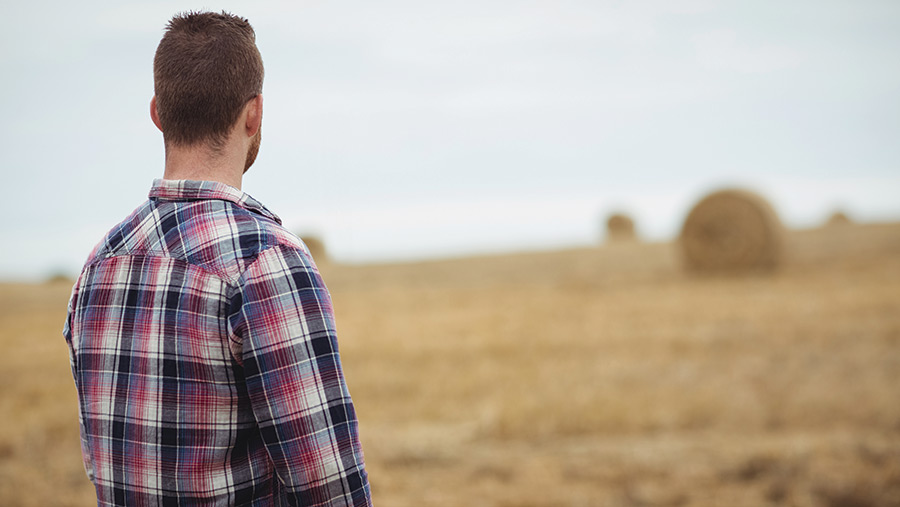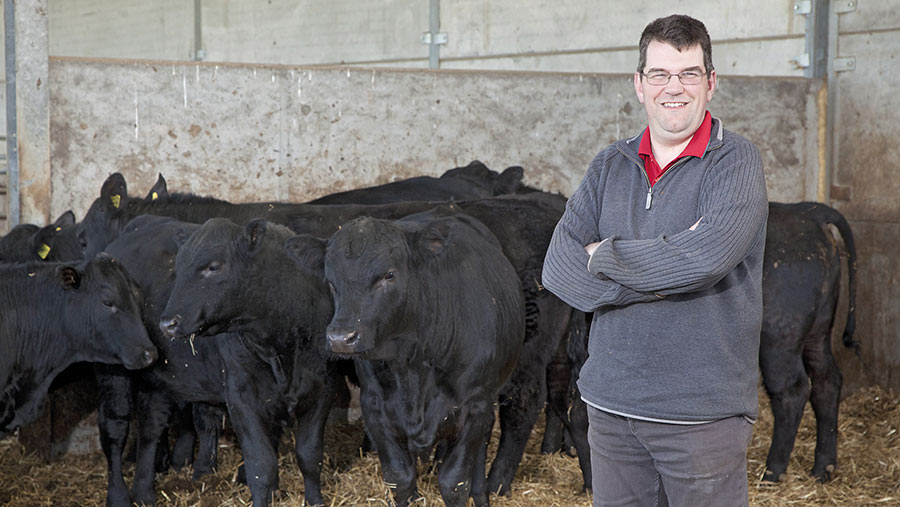Bovine TB: Farmers and vets suffer mental health toll
 © WavebreakmediaMicro/Adobe Stock
© WavebreakmediaMicro/Adobe Stock Outbreaks of bovine TB were acknowledged as being “very detrimental” to the mental health of farmers and vets in a report published earlier this year by MPs on the Environment, Food and Rural Affairs (Efra) select committee.
The Farming Community Network (FCN) has since launched a survey asking farmers to share their experiences with TB outbreaks and the effect they have had on their mental health.
While the study is yet to conclude, and farmers are still encouraged to participate, FCN spokesperson Alex Phillimore told Farmers Weekly that the results seen so far are pointing to a clear trend.
See also: Mental health survey reveals factors affecting young farmers
With more than 400 responses to date, farmers have reported feeling as though their voices are unheard, and that they lack a platform to talk about their experiences with bovine TB.
“The responses so far to FCN’s survey into the impacts of bovine TB have highlighted the emotional, physical and financial impacts this devastating disease has on our farming community,” says Alex.
“The welfare of livestock is a key priority for farmers, and the frustration, exhaustion and stress a TB breakdown causes can be traumatic.
“Many farmers have also spoken of the anxiety associated with TB testing and waiting for results.”
Farm vets carry farmer’s stress
Sarah Tomlinson has been a farm vet for more than 20 years.
As the technical director of the TB Advisory Service (Tbas) and member of the Defra Bovine TB Partnership, she has experienced first hand the emotional turmoil that disease outbreaks can cause for both farmers and vets.
In its report, the Efra select committee noted that vets working with “devastated farmers” often had to perform a “social worker role”, providing people with care as well as animals.
Delivering biosecurity advice to farmers through Tbas, Sarah says farmers often use the service as an opportunity to talk to someone that understands the experience they are going through.
“Because it is free time, as opposed to farmers having to pay their vets, I encourage the advisers to use that time just to talk about how TB is,” she says.
“It can be just listening to farmers and what they are going through, and being able to say: ‘I get it’. And a lot of them say it’s just great to be able to talk.”
Having completed one of the Royal Agricultural Benevolent Institution’s (Rabi) mental health first-aid courses, Sarah says the training has been invaluable to her work with Tbas.
“The training was based on suicide and depression, and I can honestly say by the end of it I had the confidence to have those hard conversations with farmers, in case they are thinking of suicide.
“I have had farmers on the end of the phone talking about TB and saying they are going to end their life, and it is so hard to know what the right thing to say is.”
Sharing her Rabi training among the team of advisers, Sarah says dealing with bovine TB outbreaks is not something that you can just switch off at the end of the day.
“We want to arm the vets with the skills to deal with the situation they are in, but also to deal with their own situations.
“When you’ve just destroyed a business and shut them down, and said ‘I’m very sorry, this is the reactor’, vets have got to go home and deal with that too.
“One of my clients couldn’t look at me for about a month without bursting into tears because I’d shut her farm down and 11 of her 50 cows had to go to slaughter,” Sarah explains.
Support each other
Vets are in a unique position of trust for many farmers, Sarah says, and it is important to support each other.
“What vets and farmers need to remember is to say well done and thank you to each other, because if a farmer does look down, then taking five minutes and just saying:
‘Shall we have a walk around these calves?’ and taking time to say: ‘They look amazing, you’re doing a really good job’, can make all the difference.
“Likewise, picking up the phone to thank a vet for coming out in the middle of the night and assisting with a calving, and saying they did a good job – this is what starts a good farmer-vet relationship.
“It’s so important to support and look out for each other.”
Sharing the stress of TB is the best medicine
Breeding pedigree Angus and Murray Grey cattle in Gloucester, Paul Westaway’s herd went down with bovine TB in the middle of Covid, after being clear for more than 11 years.

Paul Westaway © Jonathan Page
“At the time, it’s a mixture of shock and feeling like there is no end,” he says.
“The vet that shut us down was just as upset as I was.
“We work really closely with our vet – they are a big part of the team, and they are the ones that have to shut the farm down and say which animal is positive.
On our knees
“I remember at the time feeling like, if someone had given me a fiver for the whole lot, I would have taken it. We were absolutely on our knees, and our poor vet was just as bad,” says Paul.
With the help of the TB Advisory Service (Tbas), Paul was able to make a plan for his cattle, which meant the farm was back up and running as normal eight months later.
“We got some really good help very quickly from Tbas,” he says.
“Farmers are pretty stoic creatures at the best of times, but it was the feeling of hopelessness that was the really hard bit.
“That’s aside from the worries over the impact on finances. Tbas helped us to formulate a plan, and that helped us see the way out.”
Now back to annual testing, Paul says the worry over another outbreak never goes away.
“It’s ghastly. Testing is the worst week of the year. We lose sleep over it, worrying about it. The anxiety of it is horrendous, and it remains the number-one risk to our business.
“The one thing that has the biggest impact on the farm is the one thing that I can’t control.”
Vital advice
Offering advice to other farmers that are experiencing a breakdown, Paul says the key is to reach out for help quickly.
“The first thing you should do is get involved with Tbas. They’re incredibly good and can provide really vital advice.
“On day one, start talking to people, because there is hope, and it will get better. Don’t sit and look at the bottom of your coffee cup for weeks because you will feel worse.
“There are people that understand it implicitly – start talking to them.”

